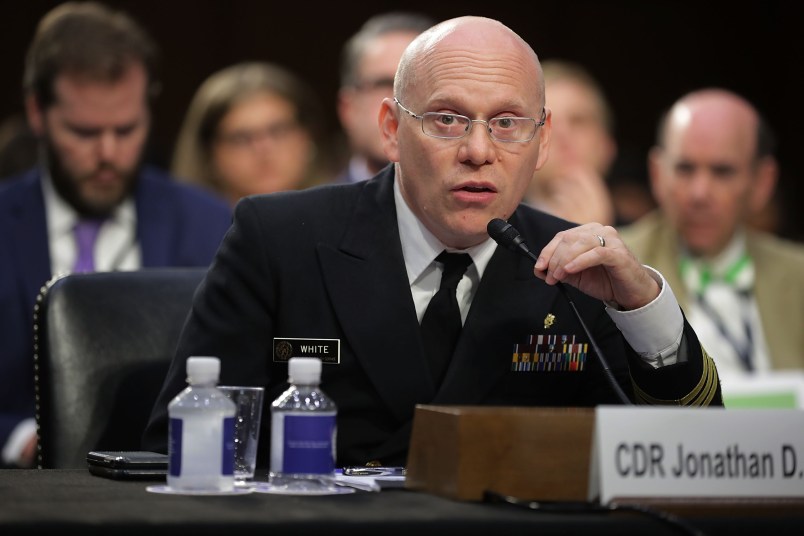On Tuesday, the Senate Judiciary Committee held the first and possibly only congressional oversight hearing on the Trump administration immigration policies that led to the forced separation of thousands of parents and children. At the hearing, administration officials revealed that hundreds of children remain separated nearly a week after a court-imposed deadline to reunite them, that pregnant detainees can be shackled as long as they are not in “active labor” and that there was significant internal pushback within agencies as the family separation policy was being developed by President Trump and Attorney General Jeff Sessions.
When Sen. Richard Blumenthal (D-CT) asked officials from the various agencies involved in the family separation crisis if anyone within the administration said, “hey, maybe this isn’t a good idea,” Office of Refugee Resettlement official Jonathan White said he and others did try to sound the alarm.
“During the deliberative process over the previous year, we raised a number of concerns about any policy that would result in family separation due to concerns we had about the best interest of the child,” White said.
“You told the administration that kids would suffer as a result, that pain would be inflicted?” Blumenthal pressed.
“Separation of children from their parents entails significant risk of harm to children,” White answered. “There’s no question that there is potential for psychological traumatic injury.”
Details of the internal deliberations that led to the creation of the family separation policy have not yet been revealed, though a lawsuit by 17 Democratic attorneys general is attempting to obtain records through the discovery process.
At the hearing, officials from ICE and Customs and Border Protection were vocally defensive of the administration, repeatedly casting blame on the migrant parents for bringing their children on the dangerous journey to the United States in the first place and declaring that the facilities that hold the separated children are “like summer camps.”
Many Democrats on the committee disputed this characterization, citing recent reports of sexual assault and other dangerous conditions at the migrant child shelters that were serious enough to convince a federal judge to appoint an independent monitor to oversee them. When Sen. Mazie Hirono (D-HI) asked the testifying officials if they would send their own children to these “summer camp” facilities, they demurred, saying that the families are only in this situation “because they broke the law.”
At the hearing, administration officials pointed to multiple ongoing lawsuits around family separations as the reason they could not answer many of the senators’ questions, including queries about the plans for reuniting hundreds of children who remain in custody and whose parents have been deported, and allegations that many parents were coerced or misled into waiving their right to be reunified with their children.
Without addressing the specific claims that some parents did not give informed consent to leave their child in U.S. custody, White spoke emotionally about why a parent may indeed make that painful choice.
“Many parents have made this journey because that is the desperate last act of a parent trying to take a child out of some of the most dangerous places to raise a child in the world,” White said. “Honduras has the highest youth murder rate on earth for any country not actively at war. Though it might be unfathomable why anyone presented with the opportunity to be reunified with their child might say no, it is unfathomable until you have walked in those parents’ shoes.”







The last paragraph of this article says it all.
“There’s no question that there is potential for psychological traumatic injury.”
For Trump, this was a feature, not a bug.
Seriously.
Trying to warn Trump of something sounds about as productive as asking the sun to not set, but it’s good to get this on the record.
The kids were all bad hombre MS-13 recruiters, so crisis averted.
Thanks, Donnie!
When Sen. Richard Blumenthal (D-CT) asked officials from the various agencies involved in the family separation crisis if anyone within the administration said, “hey, maybe this isn’t a good idea,” Office of Refugee Resettlement official Jonathan White said he and others did try to sound the alarm.
To which the Trump Mal-Administration responded

They don’t give a fuck - Played well with the base